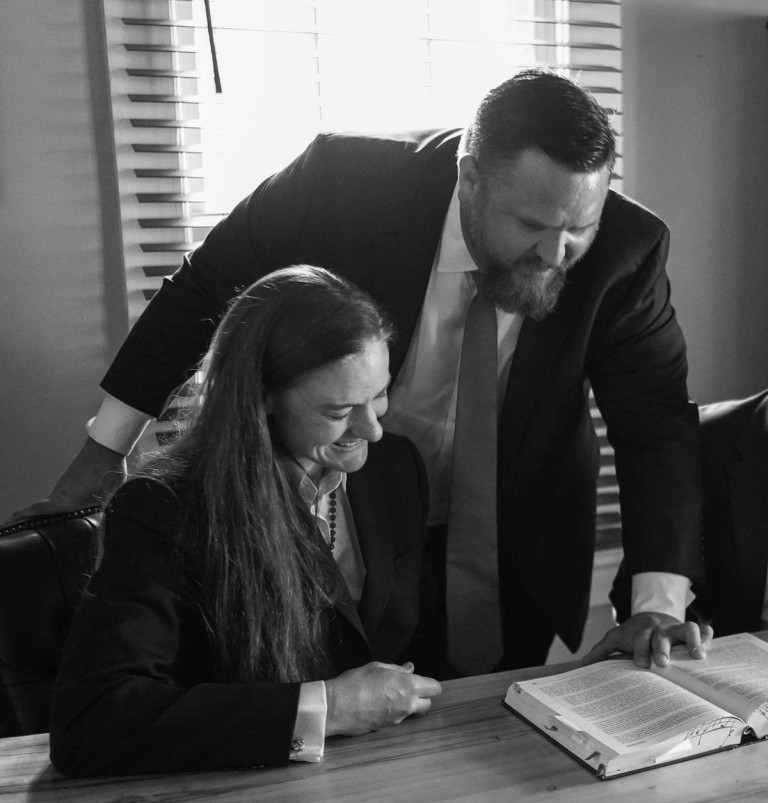When a couple decides to get a divorce, it means a lot more than signing a piece of paper. Divorce can come with several issues that may take months or years to resolve. Not only can divorce impact your children, home, finances, and other personal assets, it can also impact your business. When divorce threatens your business, the thought of losing it becomes all too real. The stress and frustration can come to a boiling point.
In this article, we’ll discuss how a business can be affected by divorce. If you are in this situation and need a legal advocate on your side, our experienced divorce attorneys at Fender Law Firm can help you. Give us a call at 843-379-4888, or fill out our online form, and we’ll reach back out to you.
Marital Property and Non-Marital Property
When you get divorced, the mediator or a court will categorize your assets into two categories: marital property and non-marital property. South Carolina adheres to the equitable division of marital assets. It’s intended that both parties walk away from the marriage with a fair, though not always equal, portion. To make this equitable distribution, the court must:
- Identify the marital and non-marital property that will be divided between both parties
- Determine the fair market value of each asset
- Allocate the property according to the contributions of each party, their separate assets and income, and marital asset special equities
- Ensure an equitable division of the marital property
Marital property includes assets acquired during the marriage, obtained with marital finances by one spouse or both spouses during the marriage, excluding gifts or inheritances received by one spouse. Another exclusion is in the case that an asset was protected from division via a prenuptial or postnuptial agreement.
Non-marital assets include property obtained by one spouse prior to the marriage, gifts received by either party during the marriage, or any inheritances obtained during the marriage. Generally, non-marital assets will not be subject to equitable distribution during divorce. However, sometimes non-marital property may be categorized as marital property in certain situations. For instance, if, after receiving an inheritance, something was done that indicated the desire of the recipient party to share the inherited property with their spouse, the property would then be considered marital. As another example, if land was inherited by one spouse, then that spouse added the other’s name to a deed, the land would be considered a marital asset.
Upon marital asset distribution, the judge will consider several factors, including the length of the marriage, the contributions of each party to acquire the assets, the value of the marital property, marital misconduct by either of the parties, any previous formal signing of marriage settlement agreements, custody arrangements of children, the income and earning potential of the parties, and more. South Carolina Code § 20-3-620.
When Is a Business Considered a Marital Asset?
Typically, during divorce, businesses are subject to division by the courts as with any real or personal property outlined above, unless one party can prove that the business is not a marital asset. Generally, for a business to be considered a non-marital asset, it must fall into one of the following categories:
- The business was initiated prior to the marriage
- One party received the business as a gift or inheritance
- The business was acquired with non-marital funds
- The business was protected by a prenuptial or postnuptial agreement
Some exclusions to the above protections may apply, depending on the facts of your case. Consider the doctrine of “transmutation” of non-marital assets, as is the case of a business owner initiating the company prior to the marriage, then bringing their spouse into the business in a significant way during the marriage. An example might be in the event a wife began her company before she was married, then hired her spouse as a secretary of that company after the marriage. The spouse quit his job to work the needed hours at his wife’s company, where he made significantly more than the average salary of the same position elsewhere. In this case, the previously considered non-marital property may be considered marital property by the court.
How Are Businesses Divided in Divorce?
As with all marital assets, the court may consider a few details in determining business distribution, if necessary, including the length of a marriage, the number of years a business is in operation, and financial contributions that were made by each spouse while married (as well as sweat equity).
To divide a company, the value must first be calculated. There are a few different ways to determine the value of a company during divorce, and they typically fall into three categories, including the “asset approach,” the “market approach,” and the “income approach.” This may require consultation with financial experts, appraisers, and other professionals. If the parties are unable to agree on the value of the business, a judge will decide what the business is worth.
Once the division of the business is equitably decided, there are some scenarios to consider when splitting a private company between you and your spouse. You can review these options with your divorce attorney to decide what will work best for you. Some options may include a buy-out, selling the business to a third party, or remaining co-owners with your divorced spouse.
Hiring a Divorce Lawyer to Protect Your Business
The best next step is to consult a divorce attorney as soon as possible. A lawyer will help you determine which items should and should not be included in the marital estate, better understand what portion you might receive, and protect your interests as much as possible. Being proactive versus reactive in divorce is essential. If you are in the middle of a divorce or contemplating divorce and want to know your rights, contact a family law attorney at Fender Law Firm as soon as possible. Located in South Carolina, we will work with you to ensure you receive what you are entitled to. Contact Fender Law Firm for a free consultation.






